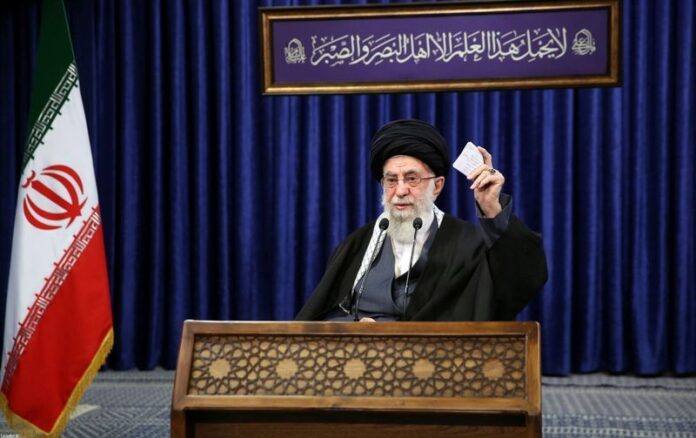DUBAI: Iran’s Supreme Leader Ayatollah Ali Khamenei on Friday banned the government from importing Covid-19 vaccines from the United States and Britain, labelling the Western powers “untrustworthy”, as the infection spreads in the Middle East’s hardest-hit country.
In a live televised speech, Ayatollah Khamenei raised the prospect of the two Western countries, long-time adversaries of the Islamic Republic, possibly seeking to spread the infection to other countries.
He added however that Iran could obtain vaccines “from other reliable places”. He gave no details, but China and Russia are both allies of Iran.
“Imports of US and British vaccines into the country are forbidden … They’re completely untrustworthy. It’s not unlikely they would want to contaminate other nations,” said Ayatollah Khamenei, the country’s highest authority.
“Given our experience with France’s HIV-tainted blood supplies, French vaccines aren’t trustworthy either,” Khamenei said, referring to the country’s contaminated blood scandal of the 1980s and 1990s.
Iran launched human trials of its first domestic Covid-19 vaccine candidate late last month, saying it could help Iran defeat the pandemic despite US sanctions that affect its ability to import vaccines.
Tensions between Washington and Tehran have risen since 2018, when US President Donald Trump abandoned Iran’s 2015 nuclear deal and reimposed sanctions.
In retaliation for US sanctions, which were lifted under the nuclear deal, Tehran has gradually violated the accord. US President-elect Joe Biden, who takes office on Jan 20, has pledged to rejoin the agreement, if Tehran also returns to full compliance.
Ayatollah Khamenei said Tehran was in no rush for the US to re-enter the deal, but that sanctions on the Islamic Republic must be lifted immediately.
Iran’s utmost authority, Ayatollah Khamenei ruled out any talks over Tehran’s missile programme and Iran’s involvement in the Middle East, as demanded by the US and some other major powers.
“Contrary to the US, Iran’s involvement in the region creates stability and is aimed at preventing instability … Iran’s involvement in the region is definite and will continue.”
Shortly before Ayatollah Khamenei’s speech, Iran’s elite Revolutionary Guards unveiled an underground missile base at an undisclosed Gulf location.
The West sees Iran’s missiles both as a conventional military threat to regional stability and a possible delivery mechanism for nuclear weapons should Tehran develop them.
But Iran, which has one of the biggest missile programmes in the Middle East, regards the programme as an important deterrent and retaliatory force against US and other adversaries – primarily Gulf Arabs – in the region in the event of war.




